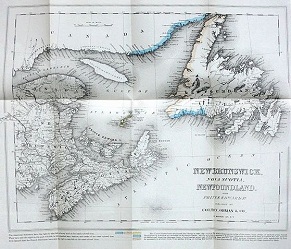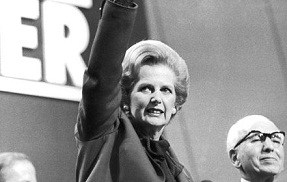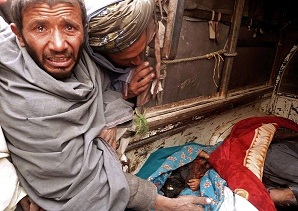Erin Steuter
 New Brunswick, Nova Scotia, Newfoundland, and
New Brunswick, Nova Scotia, Newfoundland, and
Prince Edward Island (1898). (From the book: History
and Digest of the International Arbitrations to Which
the United States has been a Party by J. B. Moore)The Irving Media Monopoly in New Brunswick
Living in New Brunswick where all of the English language daily papers are owned by one company means that there is very little variety in the type of news that is available to New Brunswick readers. We face classic problems of monopoly media ownership in which homogeneity and a narrow range of opinion are common features of the news media.
A corporate empire spanning oil speculation, refining and shipping, gas stations, food products, massive land holdings, forestry, pulp and paper, and employing one in eight New Brunswickers, the Irving group owns the province's three English-language daily newpspapers, as well as at least seven of twelve community weeklies.
Living in New Brunswick where all of the English language daily papers are owned by one company means that there is very little variety in the type of news that is available to New Brunswick readers. We face classic problems of monopoly media ownership in which homogeneity and a narrow range of opinion are common features of the news media.
For example: last month all three New Brunswick daily papers [1] ran editorials within several days of each other critiquing the government's appointment of unsuccessful Provincial Conservative candidates to government posts. While this editorial position may well be justified, and reflect the views of a majority of New Brunswickers, the audience nevertheless lost out on the ability to hear any another perspective on this issue. [2]
Living in New Brunswick where all of the English language daily papers are owned by a single large capitalist enterprise means that the voice of the corporate world speaks loudly and the coverage of labour focuses on confrontational and controversial events such as strikes in which labour is scapegoated. For example: this month all three papers ran editorials within several days of each other critical of the community college and prison custodians who were walking the picket line as part of a Canadian Union of Public Employees' strike. Terms such as irrational, unreasonable, ludicrous and greedy were peppered throughout the editorials revealing a pattern of Irving coverage of labour issues that typically portrays labour as the active and disruptive party. [3]




























